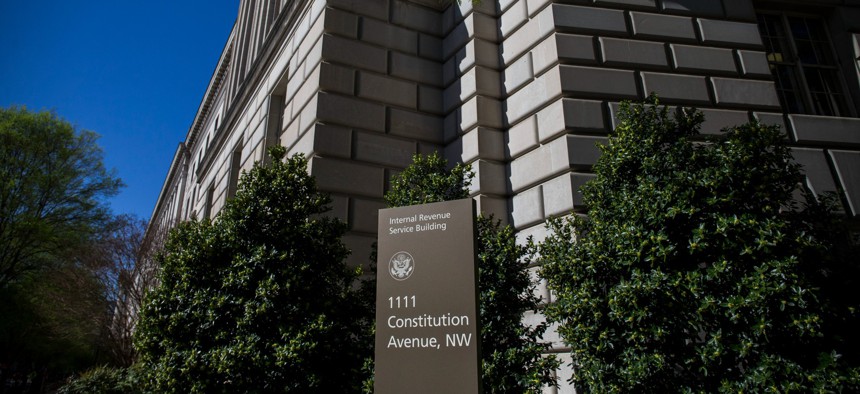IRS Marks the Annual Tax Filing Deadline With a Plea for More Funding

Zach Gibson/Getty Images
Chronic underfunding has hurt the tax agency's ability to modernize, says a top official, who wrote that the U.S. tax system "is a tax system where ripped paper returns are literally pieced together with scotch tape."
The IRS marked the annual tax filing deadline day with a message conceding that chronic underfunding has hurt the agency's ability to modernize and to effectively serve ordinary taxpayers.
"Today's deadline is an inflection point in what has been the agency's most challenging filing season in recent history," wrote Natasha Sarin, counselor for tax policy and implementation at the IRS. "This is the byproduct of chronic underfunding that has starved the IRS of the tools it needs to serve the American people, coupled with a historic pandemic that introduced new responsibilities alongside mammoth challenges."
In an April 18 blog post, Sarin also argued for an increased investment in the agency, something proposed by the Biden administration as part of its climate and social spending bill and bipartisan infrastructure investment. The proposed surge over the next decade was ultimately not included the bipartisan infrastructure package passed by Congress.
The goal had been to boost enforcement at the agency – currently, the gap between owed and collected taxes is estimated to be $600 billion annually, according to the IRS – to help offset the cost of other proposed Biden administration policies.
Sarin also pointed to that $80 billion number in this new blog post, writing that it would "finally give the IRS the capacity to modernize and invest in a 21st century workforce," resulting in "a much smoother experience for the American taxpayer, where filing is easier, and processing is automated."
Among the major difficulties are a shrunken IRS workforce and outdated technology, wrote Sarin, who called the U.S. tax system "is a tax system where ripped paper returns are literally pieced together with scotch tape."
"The IRS's technology is antiquated – in significant ways, the IRS is still a paper-based agency, with a heavy reliance on manual processing," wrote Sarin.
IRS employees still manually enter paper returns into IRS systems, a point that IRS Commissioner Charles Rettig discussed with lawmakers at a hearing earlier this month.
Outdated tech was also a contributing factor to a backlog of unprocessed returns last year, something that Rettig pledged earlier this month to get to a "healthy" level by the end of this year at the same hearing.
"So long as funding remains insufficient, the system will be at risk of these kinds of failures," wrote Sarin.
Among the other major tech priorities is modernizing the IRS's key source for individual tax data, which isn't slated to be done until 2030, according to a report from the Government Accountability Office last fall.
The fiscal year 2023 budget request for the IRS also calls the current moment an "inflection point" for the agency's tech.
The IRS is done with the first phase of its six-year modernization business plan and is "confident that the plan, if adequately resourced, paves the way to providing the highest-quality service to taxpayers and the tax community," it states.






